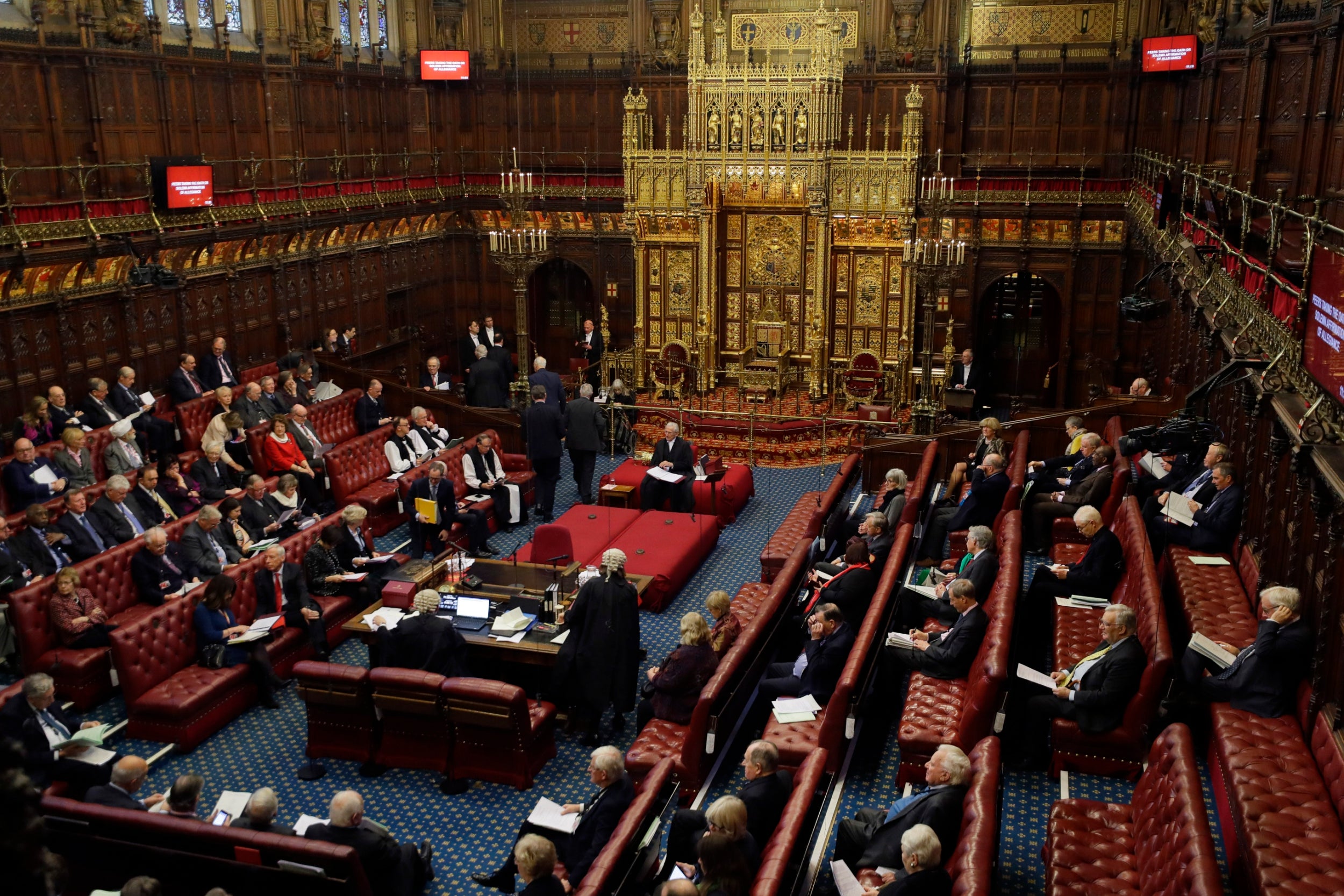Your support helps us to tell the story
From reproductive rights to climate change to Big Tech, The Independent is on the ground when the story is developing. Whether it's investigating the financials of Elon Musk's pro-Trump PAC or producing our latest documentary, 'The A Word', which shines a light on the American women fighting for reproductive rights, we know how important it is to parse out the facts from the messaging.
At such a critical moment in US history, we need reporters on the ground. Your donation allows us to keep sending journalists to speak to both sides of the story.
The Independent is trusted by Americans across the entire political spectrum. And unlike many other quality news outlets, we choose not to lock Americans out of our reporting and analysis with paywalls. We believe quality journalism should be available to everyone, paid for by those who can afford it.
Your support makes all the difference.A decision to hold meetings of the House of Lords in private when it returns from recess has been criticised by democracy campaigners.
Lords authorities announced that virtual sittings of the second chamber, brought in to help with social distancing, would not initially be broadcast to the public, despite there being no technical limitations to doing so.
On Tuesday both houses will return from an extended recess to discuss the Covid-19 pandemic, but voters will only be able to see what is happening live in the Commons, while the Lords will publish written transcripts later.
Darren Hughes, chief executive of the Electoral Reform Society told The Independent: “Voters across the world expect to see the legislators they are paying: it’s a core part of democratic transparency. This seems to be another sign of the Lords failing to meet the democratic standards voters expect.
“The Commons has shown that broadcasting the mostly-virtual hearings is possible from Day one. It’s vital for democracy not to simply be done, but be seen to be done. Unfortunately, any kind of democracy is lacking in Britain’s out-dated second chamber. The Lords authorities must get to grips with this rapidly.”
It comes after news that some peers are lobbying the House of Lords to still pay them their £323 a day "attendance allowance" even if they only attend virtually. House authorities say only peers attending the palace in person will be able to claim.
Mr Hughes of the ERS added: “It is jarring to see Lords lobbying to receive their full £323-a-day expenses - without voters being able to see what they’re doing with it. This will strike most people as tone-deaf when millions of workers have had to make sacrifices during this crisis."
Commenting on the announcement of the virtual sittings, Lord Fowler, the Lord Speaker, said the virtual Lords "will inevitably face some technical teething problems" – perhaps explaining the decision not to broadcast the initial proceedings. The average age of peers in the unelected chamber is over 70.
Under the plans for the virtual sittings, the Commons will sit Monday to Wednesday and Lords will sit Tuesday to Thursday, where both chambers will hold questions sessions and ministerial statements. The Lords is due to use Microsoft Teams and the Commons will use Zoom to allow them to conduct their business virtually.
Both chambers were understood to have been given different briefs on what was required for parliamentarians, which led to different technology being applied in each House. The Commons was ordered to provide live broadcasts of proceedings by the government, hence the decision to use Zoom.
The Lords authorities were understood to be told to provide a more limited function for completely virtual proceedings, rather than a hybrid model like the Commons where the Speaker, ministers and some MPs would be physically present and others dialling in remotely.
The Lords will return in two phases, with the first stage seeing peers take part in virtual meetings and chamber business that operate separately and will not be broadcast live.
Discussions are still ongoing about the next phase of the Lords’ return, which could see the upper chamber move to a similar model to the Commons from 5 May.
Peers have been having training with staff after the last few days to make sure they are as up to speed as possible with technology.
A House of Lords spokesperson said: “The Electoral Reform Society are wrong to suggest Members will receive payment without voters being able to see what they are doing. Participation in the virtual sittings of the House does not qualify for claiming attendance allowance.
“It is expected that the Lords virtual proceedings will be broadcast from 5 May so there are likely to be only six days of Parliamentary business where the proceedings are not broadcast. On those days a Hansard transcript will be made available as soon as possible after the virtual business concludes, an audio recording will be published and journalists based in Parliament will be invited to view a livestream to inform their reporting.
“Legislative business will continue to take place in the Chamber and be broadcast in the normal way.”

Join our commenting forum
Join thought-provoking conversations, follow other Independent readers and see their replies
Comments